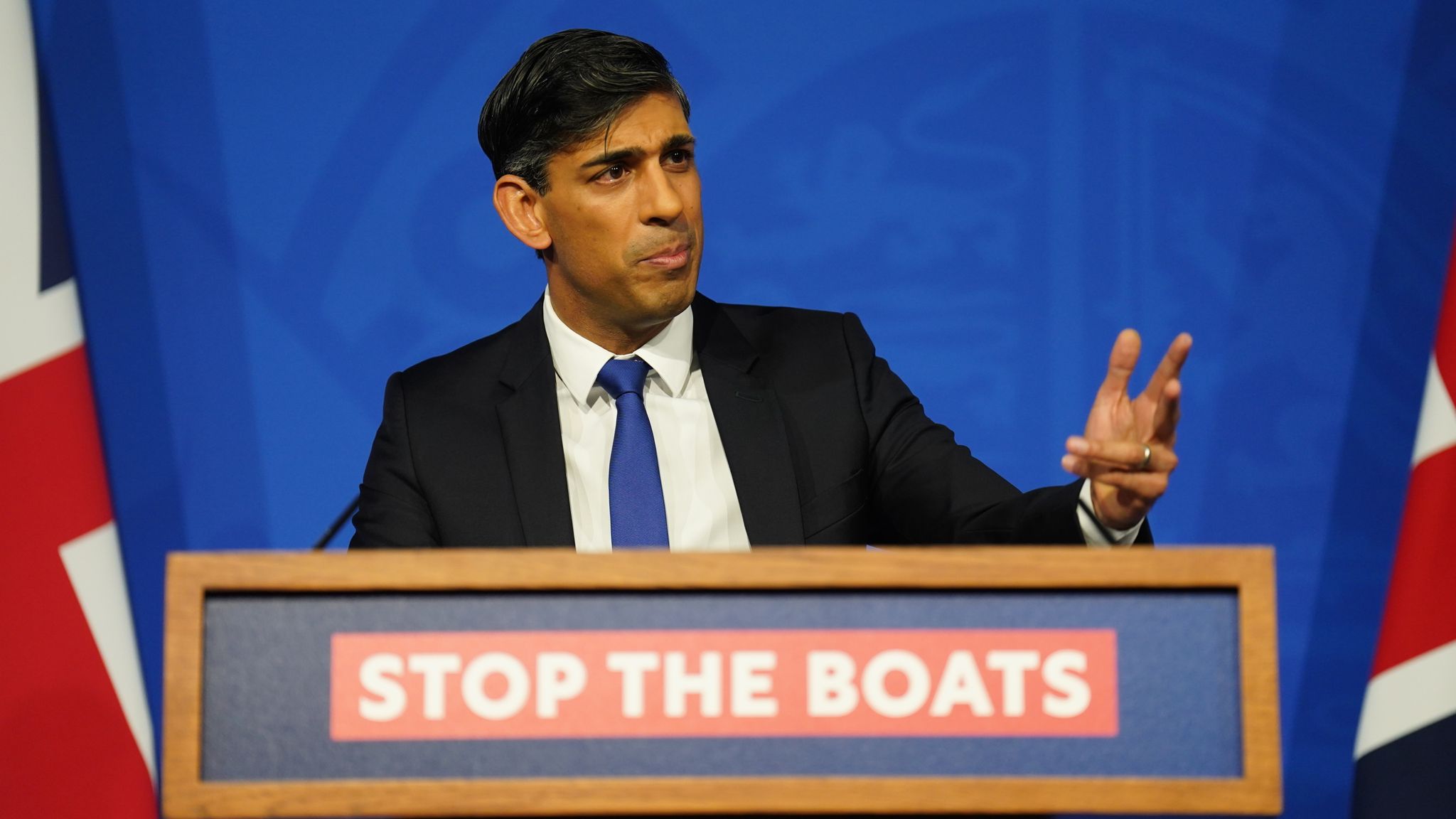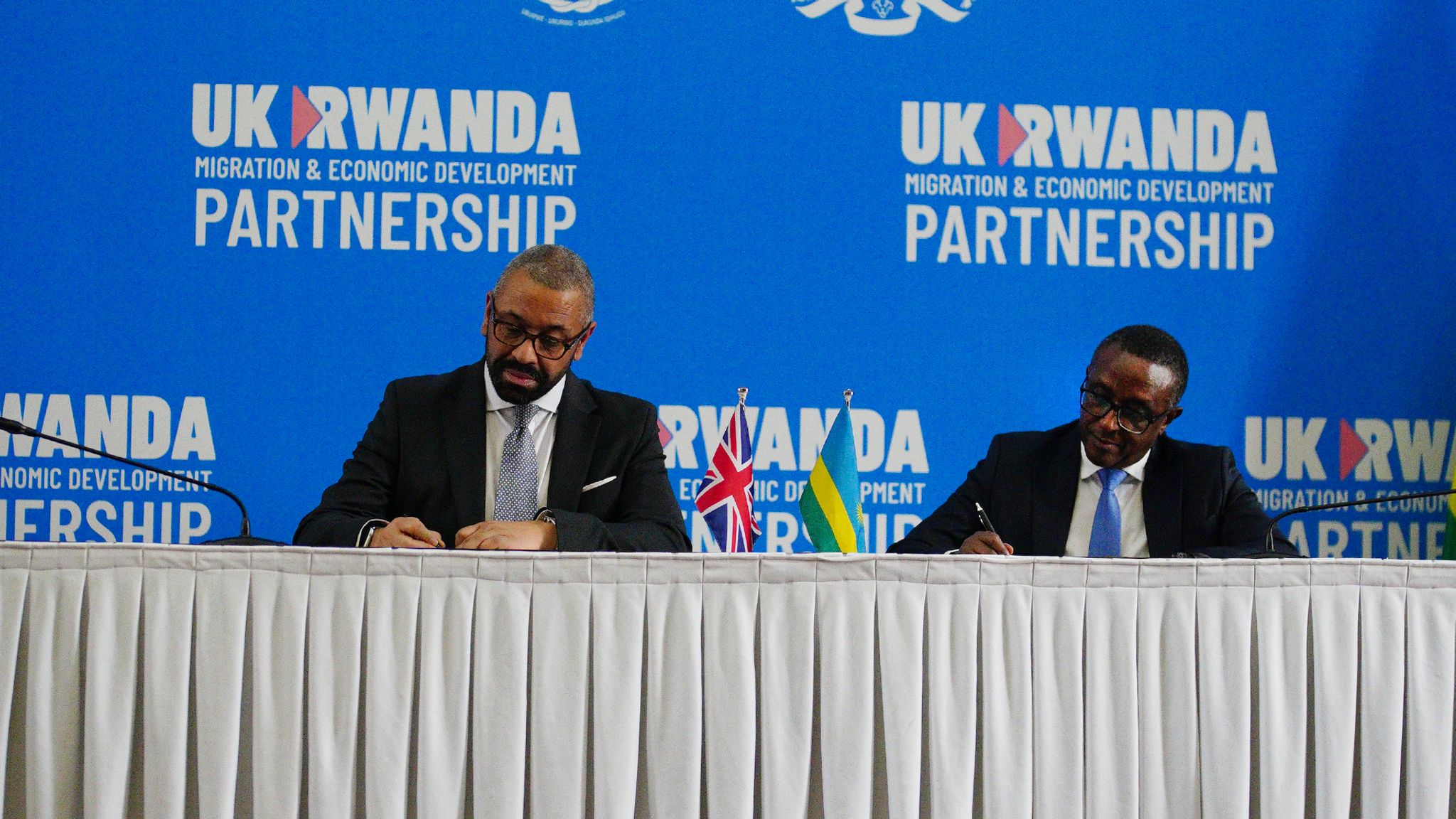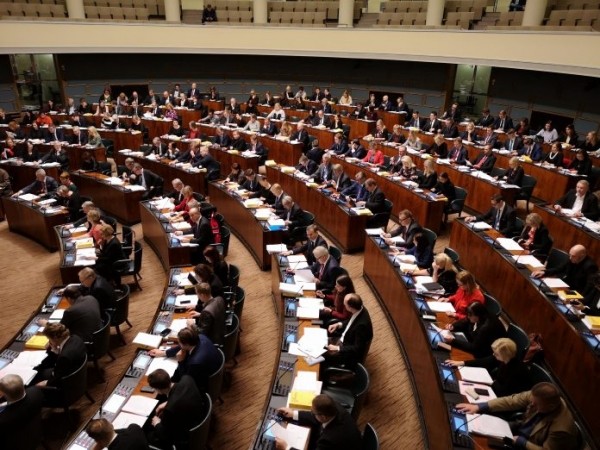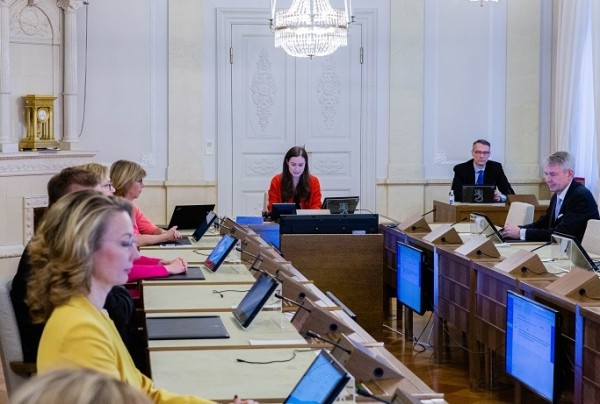Rishi Sunak’s path to Rwanda plan success just got harder – again – after symbolic Lords defeat
If anyone doubted the strength of opposition to Rishi Sunak’s Rwanda policy in the House of Lords, there shouldn’t be any doubt now.
Peers voted by a pretty hefty majority of 43 – 214 votes to 171 – for a motion to delay ratification of the government’s Rwanda treaty until safeguards have been implemented.
An unusual move? Certainly. House of Lords veterans believe it’s the first and only time the Lords have voted against ratifying an international treaty. Shows how cross they are!
The motion was proposed by Lord Peter Goldsmith. Remember him? He was Tony Blair’s attorney general from 2001 until 2007, a period that included his legal advice on the 2003 Iraq war.
There were cheers on the opposition benches in the Lords when Labour’s chief whip, the burly figure of Lord Roy Kennedy, read out the result of the vote with barely concealed glee.
But the big significance of this government defeat is that it spells trouble when peers start debating the Rwanda bill and then vote on amendments at the report stage in early March.
This was an ominous warning for the prime minister. It shows that a majority of their lordships don’t like the Rwanda policy one bit.
When the bill got its first reading last Thursday, there was laughter and a shout of “shame” from one peer.
This debate, lasting nearly four hours, was mostly polite and good-tempered, as Lords debates usually are. But it all got a bit heated and tetchy at the end as tempers frayed and insults were hurled across the chamber.
Labour’s spokesman Lord Vernon Coaker, a former MP who was a minister under Gordon Brown, bitterly attacke Mr Sunak for his news conference last Thursday when he urged the Lords to “accept the will of the people”.
That prompted Lord Andrew Sharpe of Epsom, a Tory businessman ennobled by Boris Johnson in 2020, to accuse Labour of attempting to wreck the Rwanda bill, even though this vote was on the treaty, not the bill.
A furious Lord Goldsmith then rose and said he resented that claim. It was, he said, a debate on the report of the all-party International Agreements Committee, which he chairs, and the report had been unanimous.
Ironically, the majority against the government, 43, was virtually identical to the government majority of 43 at the Rwanda bill’s second reading in December and its third reading last week.
Ultimately, the government will get the Rwanda bill through the Lords, after parliamentary “ping pong” between the Lords and the Commons, no doubt.
But this vote suggests that the Lords have the ability to frustrate and delay its progress.
So did the prime minister’s “will of the people” news conference last Thursday backfire? Almost certainly.
Judging by Lord Coaker’s criticism, it appears to have antagonised peers and hardened their opposition to the Rwanda policy.
Will the government simply ignore the call for safeguards? Possibly, although the immediate reaction was that ministers would respond with a statement to address the issues raised.
Downing Street is still insisting that flights to Rwanda will take off “in the spring”. That’s pretty vague.
And this Lords defeat, even if it’s only symbolic, has made the government’s task harder. Again.






